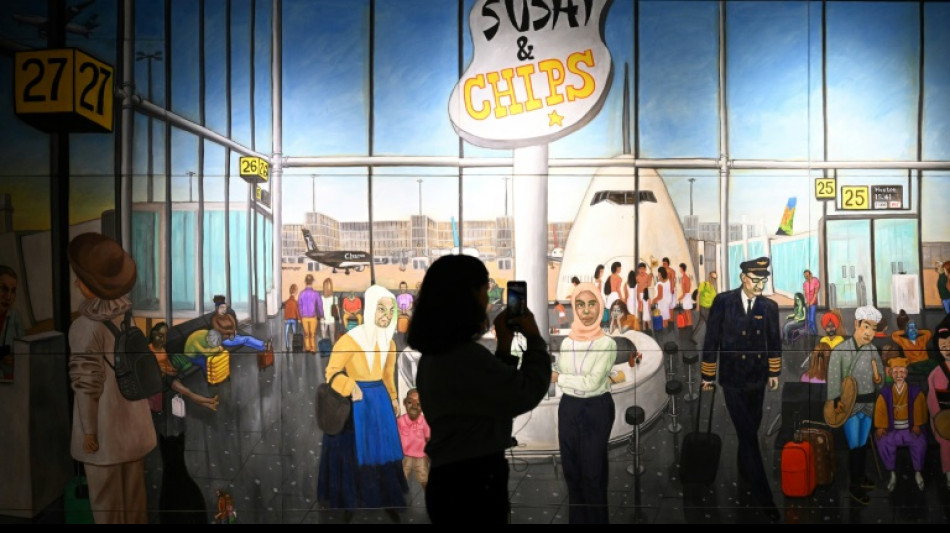
RIO
-0.2200

Weeks after anti-immigrant riots spread across England, a London exhibition is celebrating the impact immigrant communities have had on Britain through photos, testimonies and art installations.
Migration is "often seen as something that's very divisive" but in reality "is just a part of our daily lives", said Aditi Anand, curator of "All Our Stories: Migration and the Making of Britain".
"It's shaped Britain over the centuries and we want to get a sense of that long history and show that migration has always been happening," she told AFP.
The exhibition, which opened Thursday at London's Migration Museum, features 7,000 testimonies, 200 photographs and contributions from about 50 artists.
It aims to show the "human stories behind the headlines", added Anand, the museum's artistic director, who said migration had influenced Britain from food to fashion.
The long history of migration down the centuries also features in the exhibit, which runs until December next year.
A video by director Osbert Parker recalls that between 4,000 and 800 BC, "communities from the Mediterranean and continental Europe arrived in Great Britain including Celtic tribes, today known as the Ancient Britons".
- Not a modern phenomenon -
The video is a reminder that the Romans were followed in the fifth century by the Angles, Saxons and Jutes of northern Europe, who brought with them Germanic languages and culture.
"The idea is to show that the immigration is not something modern. It's been going on for generations," she added.
According to the last census in 2021, 17 percent of the British population was born outside the country, or around 10 million people.
"I think what we really want to show is that it (migration) has just been a part of our lives. It's part of the fabric of this country's DNA," said Anand.
The display features a vending machine of products that "look like they're quintessentially British brands" but have "migrant founders", she noted.
One company featured is Marks & Spencer, co-founded by Michael Marks who was born into a Polish-Jewish family before arriving in Leeds in northern England in 1882.
The country's first coffee chain, Costa Coffee, is also included. It was created by two brothers who arrived from Italy in the 1950s.
The exhibition also shows a reconstructed Chinese takeaway and the kitchen of a Spanish restaurant.
It also details the European migration crisis of 2015 with a look at the now-closed "Calais Jungle", a vast camp where thousands of people waited to cross the Channel from northern France.
Next to a reconstructed tent, a series of photos put faces and stories to the migration crisis.
The exhibition comes as the UK continues to grapple with high levels of irregular migration, with nearly 23,000 crossing the Channel in dangerous small boats this year.
It recalls that three centuries ago, Huguenot French Protestants fled persecution by crossing the same body of water to England where they were warmly welcomed by the authorities.
F.Chaudhary--DT